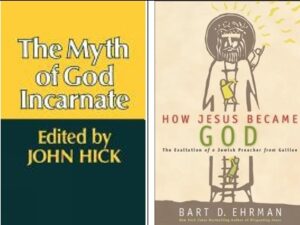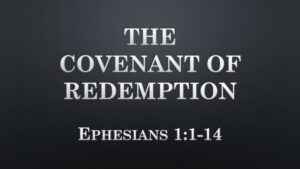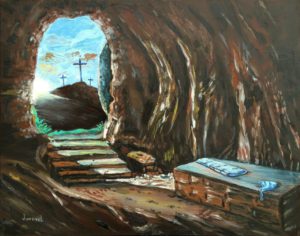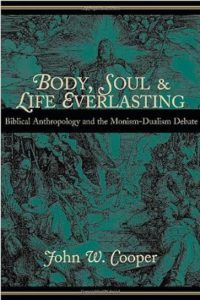
Earlier post – “Cosmos to Cradle: From Pre-existent to Incarnate Christ.”
I. Contemporary Challenges to Christ’s Pre-existence
Several prominent scholars have recently challenged the orthodox doctrine of Christ’s divine pre-existence. This article provides a response to their challenge from the standpoint of historic Christian orthodoxy.
A. John Hick’s Mythological Interpretation
John Hick contends that the doctrine of the Incarnation is not a literal truth but a mythological construct developed by the early Church. In The Myth of God Incarnate, he writes:
I suggest that…the idea of divine incarnation is a mythological idea. And I am using the term ‘myth’ in the following sense: a myth is a story which is told but which is not literally true, or an idea or image which is applied to someone or something but which does not literally apply, but which invites a particular attitude in its hearers. Thus the truth of a myth is a kind of practical truth consisting in the appropriateness of the attitude to its object. That Jesus was God the Son incarnate is not literally true, since it has no literal meaning, but it is an application to Jesus of a mythical concept whose function is analogous to that of the notion of divine sonship ascribed in the ancient world to a king…it offers a way of declaring his significance to the world; and it expresses a disciple’s commitment to Jesus as his personal Lord. He is the one in following whom we have found ourselves in God’s presence and have found God’s meaning for our lives. He is our sufficient model of true humanity in a perfect relationship to God.1The Myth of God Incarnate (SCM, 1977), pp. 178-179.
For Hick, Jesus is not ontologically divine but is a uniquely God-conscious human being whose life invites existential commitment. The Incarnation, in this view, is a symbolic affirmation of Jesus’ exemplary humanity, not a metaphysical reality.
B. Bart Ehrman’s Developmental Theory
Bart Ehrman argues that belief in Jesus’ divinity and pre-existence was not held by His earliest followers but emerged gradually over time. In How Jesus Became God, he writes: Continue reading “Answering Contemporary Academic Challenges to Christ’s Divine Pre-existence”

 I. Doubts About the Authenticity of Paul’s Teachings
I. Doubts About the Authenticity of Paul’s Teachings




 Death, Resurrection and Life Everlasting – DRLE Pt.1
Death, Resurrection and Life Everlasting – DRLE Pt.1